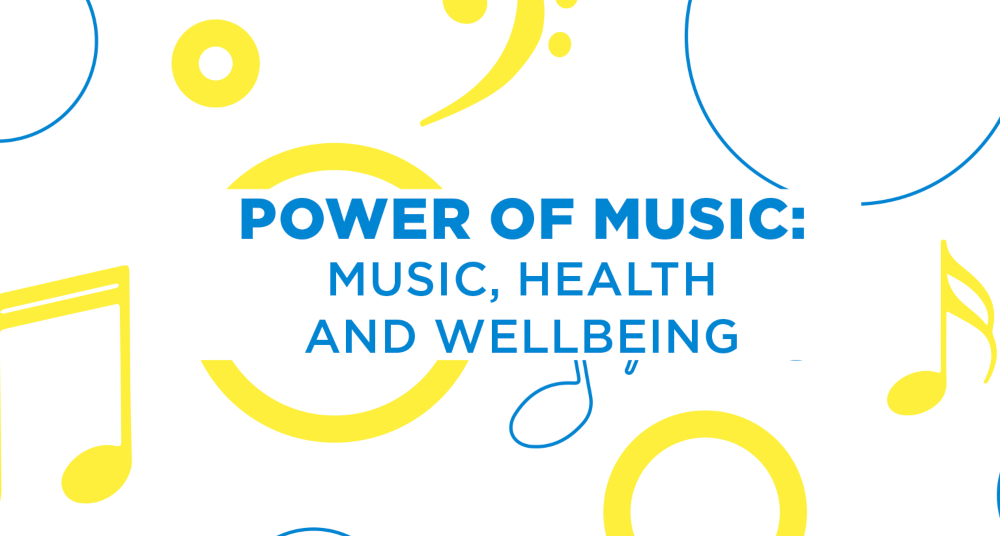A new report has seen Music for Dementia and UK Music joining forces with a blueprint that uses music to help improving health and wellbeing in the UK.
The two organisations hope that the Power of Music report, which has been officially launched today, will amplify how music can be used to improve the lives of those dealing with illnesses such as dementia, depression, and other debilitating conditions.
The report demonstrates how the use of music can support staff, create financial savings and help to achieve improved health and care outcomes. The organisations state that the report contains a series of 'ambitious but achievable recommendations which can be quickly implemented to deliver positive change,' and they are calling on the government to work with health, care, music, philanthropy and third sectors to invest in and capitalise on 'the positive changes the power of music can deliver.'
Its publication follows a year-long study by UK Music, the collective voice of the UK music industry, and Music for Dementia, the leading health and music campaign, which produced the report following consultation with key stakeholders from charities, government and the health and social care sectors as well as musicians, music therapists, people living with dementia and their carers.
The Power of Music report sets out four key recommendations:
- The appointment of the UK’s first Power of Music Commissioner to champion and coordinate all the work in this area - setting up a new Government taskforce and a Life With Music Consortium to spearhead positive change.
- A major public awareness campaign to show how the power of music can change lives, improve health and bring communities together - supported by a new online information platform, development of which is being led by Universal Music UK.
- Support frontline workers by providing better training on the role of music in health and care – in particular by establishing an accessible training module to help practitioners understand how best to use music as part of the care they provide in their work setting.
- Extra funding to help make music accessible to all delivered by new investment partnerships between Government, industry and philanthropists.
Andrea Czapary Martin, chief executive, PRS for Music, said: 'The Power of Music report showcases the important role music can play in supporting those dealing with dementia, depression, loneliness and other debilitating conditions. We fully endorse the recommendations made in the report and thank UK Music, Music for Dementia and The Utley Foundation for their work. Their evidence is clear, music must be a pillar of future public health strategies.'
Grace Meadows (campaign director, Music For Dementia) said: 'The pandemic has shown us how we urgently need to reimagine health and social care in the UK. Music has a critical role to play in this and while we’re committed to making this happen, we can’t do this alone. We need leadership, public engagement and funding at the very least, including the appointment of a Power of Music Commissioner who will turn our recommendations into action.
'One of our biggest challenges is that many people still don’t fully appreciate the power of music, but we could begin to change that within a year. We’re calling upon the Government and leaders in the fields of health, care, music, charity and philanthropy to work together to ensure the greater use of music in social prescribing and make it a key tool in public health strategies. As a country we can change the lived experience of millions living with dementia and wider health issues. We can do it quickly, simply and we can do it now for a relatively small investment. It just needs commitment and a determination to work together. Let’s do it.'
Jamie Njoku-Goodwin (chief executive, UK Music) said: 'Every day, more and more evidence emerges about the extraordinary health benefits of music and its potency as a non-pharmacological intervention. Whether it is in improving wellbeing and quality of life, boosting mental health or supporting dementia care, music has an incredible power to improve people’s lives. When used correctly, music can be a miracle medicine – and while there are thousands of people across the country who have seen this first-hand, there are millions more who have yet to enjoy its benefits.
'With bold leadership, cross-sector collaborations and a joined-up approach, we can harness the extraordinary power of music and ensure that everyone in our country can have access to the huge benefits music can bring.'
Professor Martin Green OBE (chief executive, Care England) said: 'I welcome the publication of the Power of Music Report, which shows the important role music plays in improving the quality of life of people living with dementia. This report is a call to action for the care sector, and identifies some very clear and tangible ways in which care providers can use music as a vital tool in delivering quality care for people living with dementia.'
Read the Power of Music report in full.





